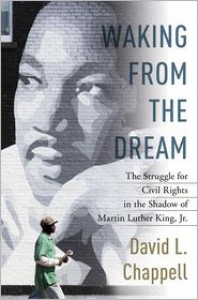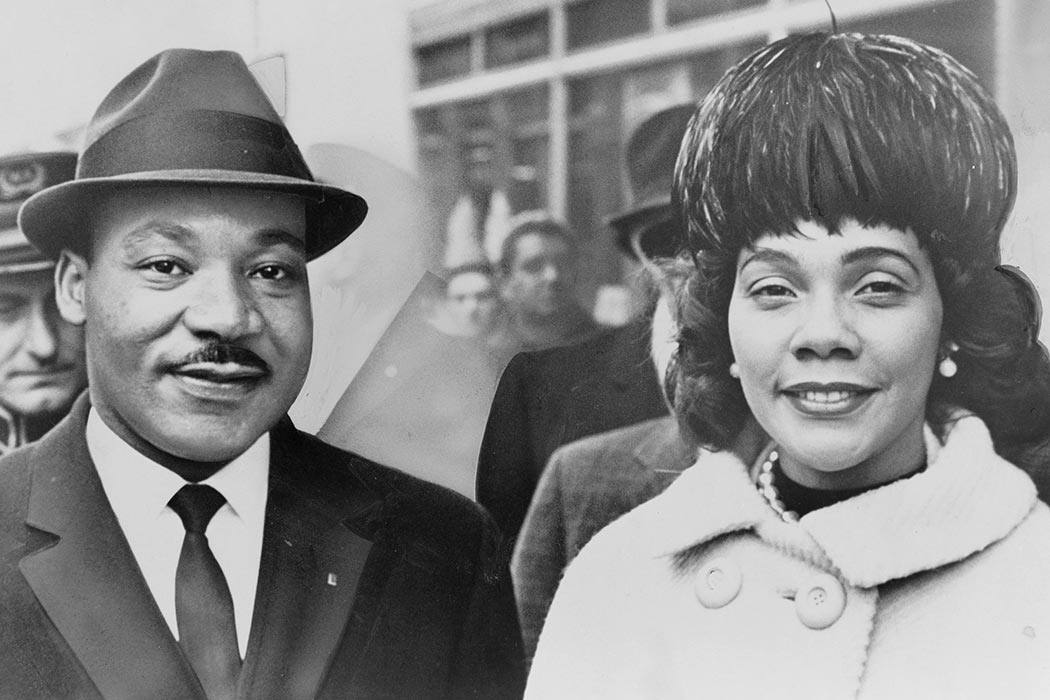

The author of A Stone of Hope, called “one of the three or four most important books on the civil rights movement” by The Atlantic Monthly, turns his attention to the years after Martin Luther King’s assassination—and provides a sweeping history of the struggle to keep the civil rights movement alive and to realize King’s vision of an equal society. In this arresting and groundbreaking account, David L. Chappell reveals that, far from coming to an abrupt end with King’s murder, the civil rights movement entered a new phase. It both grew and splintered. These were years when decisive, historic victories were no longer within reach—the movement’s achievements were instead hard-won, and their meanings unsettled. From the fight to pass the Fair Housing Act in 1968, to debates over unity and leadership at the National Black Political Conventions, to the campaign for full-employment legislation, to the surprising enactment of the Martin Luther King holiday, to Jesse Jackson’s quixotic presidential campaigns, veterans of the movement struggled to rally around common goals. Waking from the Dream documents this struggle, including moments when the movement seemed on the verge of dissolution, and the monumental efforts of its members to persevere. For this watershed study of a much-neglected period, Chappell spent ten years sifting through a voluminous public record: congressional hearings and government documents; the archives of pro– and anti–civil rights activists, oral and written remembrances of King’s successors and rivals, documentary film footage, and long-forgotten coverage of events from African American newspapers and journals.
Amazon.com
Waking From The Dream examines the years immediately following the murder of Civil Rights icon Dr. Martin Luther King, Jr. and how that tragedy affected the movement as a whole. This book covers a good chunk of history you likely were not taught in school.
It turns out a number of men tried to step in as MLK's successor as one of the key leaders in the Civil Rights Movement -- Reverend Ralph Abernathy, Reverend Jesse Jackson, and even actor Ossie Davis (who later portrayed Dr. King in a 1978 NBC documentary) were all approached with offers to take over.
One of the sections of the book that held my interest most were the years concerning MLK's widow, Coretta Scott King, and the journey she took to build and maintain her husband's historical legacy. Following the death of her husband, Coretta was often brought out as a kind of figure of the cost of the movement, but she came to really despise this move. She said she was tired of being used as a pawn to drum up sympathy and anger in crowds. While reaching large audiences was important to the cause, she felt this method just felt wrong. She decided she would try to fly solo while continuing her husband's work.

Dr. King & wife Coretta Scott King
In 1978, Coretta King heads up the Full Employment Action Council, whose purpose was to address the plight of impoverished black and white citizens alike. By 1979, Coretta begins to campaign for a national MLK Day. Other activists in the Civil Rights Movement had tried for this immediately following Dr. King's death and every year after -- musician James Brown even met with President Richard Nixon AND President Ronald Reagan to try to get the process moving -- but their requests continued to fall on deaf ears. Those in opposition to the holiday would often give speeches tying Dr. King to communism or would imply that his work actually low-key incited violence. Dr. King's opposers would claim that he was okay with prejudiced behavior as long as it swung in favor of the black community. They'd also imply that he knew how to work around the law, not with it. Surprisingly, even the Congressional Black Caucus came forward and said there were bigger fish to fry.
 musician James Brown & Rev. Al Sharpton
musician James Brown & Rev. Al Sharpton
at the White House in 1982
Even with Coretta's efforts, the holiday wasn't made official until 1983, under President Reagan (though it took some time before he was fully on board with the idea). Once MLK Day was made official, Reagan came forward with this statement:
"Though Dr. King and I may not have exactly had identical political philosophies, we did share a deep belief in freedom and justice under God. Freedom is not something to be secured in any one moment of time. We must struggle to preserve it every day. And freedom is never more than one generation away from extinction. History shows that Dr. King's approach achieved great results in a comparatively short time, which was exactly what America needed...What he accomplished -- not just for black Americans, but all Americans --- he lifted a heavy burden from this country."

Ronald Reagan signs document making MLK Day
a national holiday
Mrs. King went on to develop a friendship with President Jimmy Carter, even awarding him the MLK Nonviolent Peace Prize in 1979. Senator Ted Kennedy and Carter started using the award as a icebreaker that would develop into a platform to win votes for the Democratic Party. Coretta Scott King was not given credit whenever the award was mentioned.
The portion of this book that's the toughest pill to swallow is the light author David Chappell sheds on Dr. King, the man, not the historical figure. This means readers will read information regarding such topics as MLK's fondness for ladies and rumored infidelity as well as the plagiarism scandal around his college papers (and whether his PhD had been honestly earned) that rocked Boston University.
Clayborn Carson, the editor of Dr. King's papers said that in his research he found that there were "instances of plagiarism" in King's works, but that "in most instances King was probably sloppy rather than deliberately deceptive." Dr. Jack Boozer, a professor of religion at Emory University, discovered that some of his work had been plagiarized by Dr. King. After Boozer's death, his widow was interviewed and said that Dr. Boozer never cared all that much that King used his words, instead was glad he could be of help to the man. But she also admits that when Boozer first heard the story that he didn't speak on the matter at all for a full two days.
There were also quite a few pages in King's dissertation paper missing footnotes that should have cited source material. No one could quite agree whether this was intentional or not, but it looks especially bad when combined with suspected plagiarized passages. One of the large reasons it caused such controversy is that any other university student in line for a doctorate would have likely been failed over such oversights. King's naysayers were quick to point out that King held a C average while at Morehouse University, arguing that clearly this was a case of racial bias. Some were further angered by the fact that years later, when Brown U officials looked into the matter, they came back with the response that suspicious material had been found in King's files but that the college had decided against retroactively retracting his PhD.
But this book isn't meant as a means to shatter the legacy of Dr. King, but to offer a balanced presentation of the man and his life, and the impact of his work generations later. It might not be the best book out there on the topic (which I cringe to say, after reading that the author spent a decade putting this material together). Some material, such as that regarding the Little Rock Nine, was pretty glossed over. Still, it remains an important read towards developing a well-rounded education. Yes, it's disheartening to read of the struggle of civil rights activists, the way our government drafted Civil Rights Acts but watered them down so much before having them passed that they offered little to no help. But as some activists were known to say at the time, "If you are digging a trench with a spoon and someone offers you a shovel, you don't turn them down because they didn't offer you a bulldozer."
If baby steps is how we get to progress and success, then so be it. And in the process it's important to learn ALL the facts, take in ALL the information available and make informed decisions from there. That might mean that some of the veneer gets chipped off our heroes in the process, but I personally find it beneficial to be reminded that at the end of the day, these great feats were carried out by mortal, flawed, everyday humans just like me... not infallible gods. It helps make my little efforts all the more meaningful.
Lastly, there's a footnote in this book that stunned me, which says that when Martin Luther King was leaning over the balcony of the Lorraine Motel in Memphis, TN, talking to Rev. Jesse James standing in the parking lot on that fateful day... well, it's hypothesized that had Dr. King been standing fully upright rather than leaning over the balcony, he likely would not have been shot in the face and could have possibly survived.










